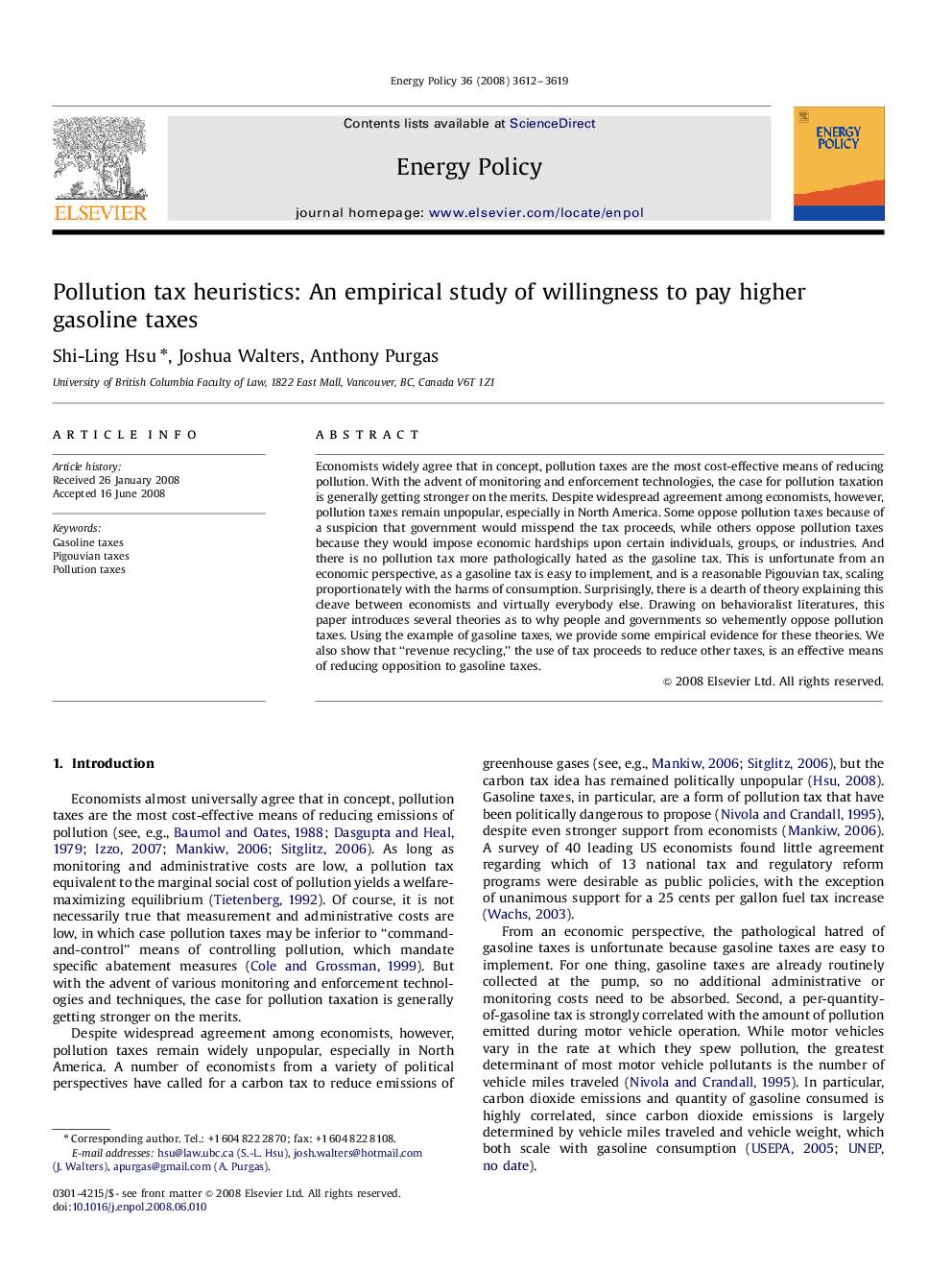| Article ID | Journal | Published Year | Pages | File Type |
|---|---|---|---|---|
| 993851 | Energy Policy | 2008 | 8 Pages |
Economists widely agree that in concept, pollution taxes are the most cost-effective means of reducing pollution. With the advent of monitoring and enforcement technologies, the case for pollution taxation is generally getting stronger on the merits. Despite widespread agreement among economists, however, pollution taxes remain unpopular, especially in North America. Some oppose pollution taxes because of a suspicion that government would misspend the tax proceeds, while others oppose pollution taxes because they would impose economic hardships upon certain individuals, groups, or industries. And there is no pollution tax more pathologically hated as the gasoline tax. This is unfortunate from an economic perspective, as a gasoline tax is easy to implement, and is a reasonable Pigouvian tax, scaling proportionately with the harms of consumption. Surprisingly, there is a dearth of theory explaining this cleave between economists and virtually everybody else. Drawing on behavioralist literatures, this paper introduces several theories as to why people and governments so vehemently oppose pollution taxes. Using the example of gasoline taxes, we provide some empirical evidence for these theories. We also show that “revenue recycling,” the use of tax proceeds to reduce other taxes, is an effective means of reducing opposition to gasoline taxes.
